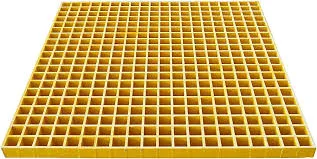
-
 Afrikaans
Afrikaans -
 Albanian
Albanian -
 Amharic
Amharic -
 Arabic
Arabic -
 Armenian
Armenian -
 Azerbaijani
Azerbaijani -
 Basque
Basque -
 Belarusian
Belarusian -
 Bengali
Bengali -
 Bosnian
Bosnian -
 Bulgarian
Bulgarian -
 Catalan
Catalan -
 Cebuano
Cebuano -
 China
China -
 China (Taiwan)
China (Taiwan) -
 Corsican
Corsican -
 Croatian
Croatian -
 Czech
Czech -
 Danish
Danish -
 Dutch
Dutch -
 English
English -
 Esperanto
Esperanto -
 Estonian
Estonian -
 Finnish
Finnish -
 French
French -
 Frisian
Frisian -
 Galician
Galician -
 Georgian
Georgian -
 German
German -
 Greek
Greek -
 Gujarati
Gujarati -
 Haitian Creole
Haitian Creole -
 hausa
hausa -
 hawaiian
hawaiian -
 Hebrew
Hebrew -
 Hindi
Hindi -
 Miao
Miao -
 Hungarian
Hungarian -
 Icelandic
Icelandic -
 igbo
igbo -
 Indonesian
Indonesian -
 irish
irish -
 Italian
Italian -
 Japanese
Japanese -
 Javanese
Javanese -
 Kannada
Kannada -
 kazakh
kazakh -
 Khmer
Khmer -
 Rwandese
Rwandese -
 Korean
Korean -
 Kurdish
Kurdish -
 Kyrgyz
Kyrgyz -
 Lao
Lao -
 Latin
Latin -
 Latvian
Latvian -
 Lithuanian
Lithuanian -
 Luxembourgish
Luxembourgish -
 Macedonian
Macedonian -
 Malgashi
Malgashi -
 Malay
Malay -
 Malayalam
Malayalam -
 Maltese
Maltese -
 Maori
Maori -
 Marathi
Marathi -
 Mongolian
Mongolian -
 Myanmar
Myanmar -
 Nepali
Nepali -
 Norwegian
Norwegian -
 Norwegian
Norwegian -
 Occitan
Occitan -
 Pashto
Pashto -
 Persian
Persian -
 Polish
Polish -
 Portuguese
Portuguese -
 Punjabi
Punjabi -
 Romanian
Romanian -
 Russian
Russian -
 Samoan
Samoan -
 Scottish Gaelic
Scottish Gaelic -
 Serbian
Serbian -
 Sesotho
Sesotho -
 Shona
Shona -
 Sindhi
Sindhi -
 Sinhala
Sinhala -
 Slovak
Slovak -
 Slovenian
Slovenian -
 Somali
Somali -
 Spanish
Spanish -
 Sundanese
Sundanese -
 Swahili
Swahili -
 Swedish
Swedish -
 Tagalog
Tagalog -
 Tajik
Tajik -
 Tamil
Tamil -
 Tatar
Tatar -
 Telugu
Telugu -
 Thai
Thai -
 Turkish
Turkish -
 Turkmen
Turkmen -
 Ukrainian
Ukrainian -
 Urdu
Urdu -
 Uighur
Uighur -
 Uzbek
Uzbek -
 Vietnamese
Vietnamese -
 Welsh
Welsh -
 Bantu
Bantu -
 Yiddish
Yiddish -
 Yoruba
Yoruba -
 Zulu
Zulu
Exploring the Benefits and Applications of Fiberglass Tanks in Various Industries
The Advantages and Applications of Fiberglass Tanks
Fiberglass tanks have steadily gained popularity across various industries due to their superior durability, lightweight nature, and resistance to corrosion and chemical damage. These tanks, made from a composite material consisting of fiberglass and resin, serve multiple purposes—from storing water and chemicals to functioning as septic tanks. In this article, we will explore the characteristics, benefits, and diverse applications of fiberglass tanks that have made them a preferred choice in many sectors.
Characteristics of Fiberglass Tanks
Fiberglass tanks possess unique characteristics that set them apart from traditional storage solutions like concrete or metal tanks. One of the most notable features is their lightweight property. Fiberglass is significantly lighter than metal or concrete, making it easier to transport and install. This is especially beneficial in scenarios where heavy equipment is challenging to maneuver.
Additionally, fiberglass tanks exhibit excellent resistance to corrosion. Unlike metal tanks that can rust when exposed to moisture and certain chemicals, fiberglass tanks are impervious to most corrosive substances. This property extends their lifespan and reduces maintenance costs significantly. Moreover, they offer superior insulation, which can be vital in applications requiring temperature control.
Benefits of Fiberglass Tanks
The growing preference for fiberglass tanks can be attributed to several key benefits
1. Longevity and Durability Fiberglass tanks can last for decades with minimal maintenance. Their resistance to environmental elements ensures that they do not degrade easily, thus providing a reliable storage solution over time.
2. Cost-Effectiveness Although the initial investment may be higher than other materials, the long-term savings from reduced maintenance, repair costs, and longevity make fiberglass tanks a cost-effective option.
3. Versatility Fiberglass tanks can be manufactured in various shapes and sizes to cater to different needs, whether it's a small tank for home use or large industrial applications. Their design flexibility allows them to fit in various spaces and contexts.
4. Safety The materials used in constructing fiberglass tanks are non-toxic, making them safe for storing food-grade products or potable water. This safety aspect is particularly crucial in the agricultural and food processing industries.
fiberglass tank

5. Minimal Environmental Impact Fiberglass is less harmful to the environment compared to metal and concrete options. Its longevity means fewer replacements and less waste. Additionally, the manufacturing process for fiberglass can be more sustainable, depending on the practices of the producer.
Applications of Fiberglass Tanks
Fiberglass tanks are utilized in a broad range of applications across various industries
1. Water Storage Municipalities and rural communities often employ fiberglass tanks for potable water storage due to their non-corrosive nature and safety features.
2. Chemical Storage Industries that work with solvents, acids, or other hazardous materials favor fiberglass tanks because they do not react with most chemicals and are less prone to leaking compared to metal tanks.
3. Septic Systems Fiberglass tanks are commonly used in septic systems due to their durability and resistance to groundwater infiltration, which helps in maintaining effective waste management.
4. Aquaculture The aquaculture industry benefits from fiberglass tanks that provide a controlled environment for fish farming. These tanks can be designed to facilitate optimal water conditions and sustainability.
5. Industrial Applications Fiberglass tanks are integral to many manufacturing processes where the storage of chemicals, resins, and other materials is crucial. Their resistance to heavy-duty use makes them ideal in industrial settings.
Conclusion
In summary, fiberglass tanks represent a modern solution to various storage needs across multiple industries. Their lightweight, durable, and corrosion-resistant properties make them a reliable choice for businesses and communities alike. As technology continues to advance, the design and capabilities of fiberglass tanks will likely evolve further, enhancing their effectiveness and broadening their applications. With an increasing focus on sustainability and cost-effectiveness, fiberglass tanks are poised to remain an essential component in a wide array of storage solutions for years to come.









